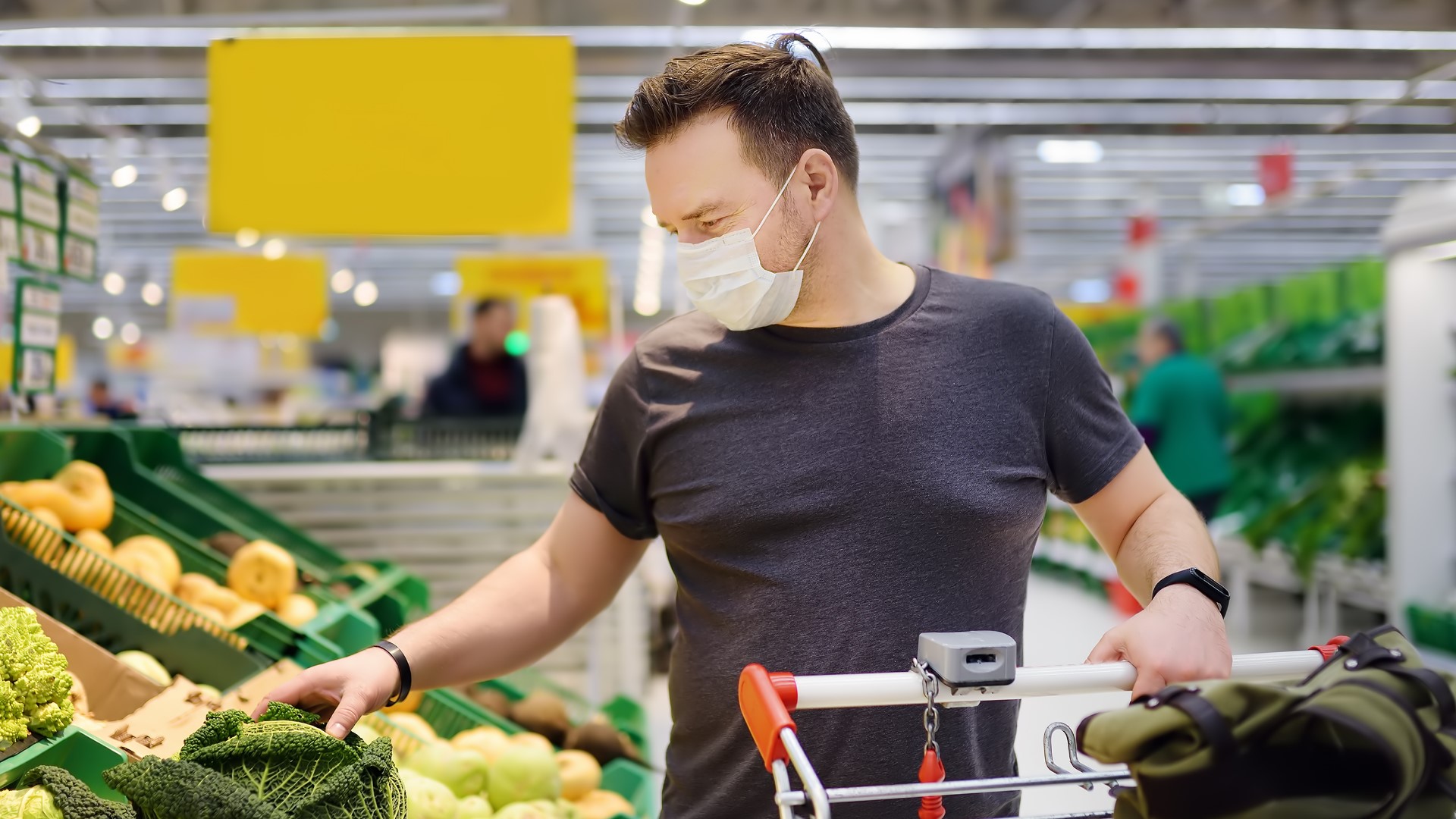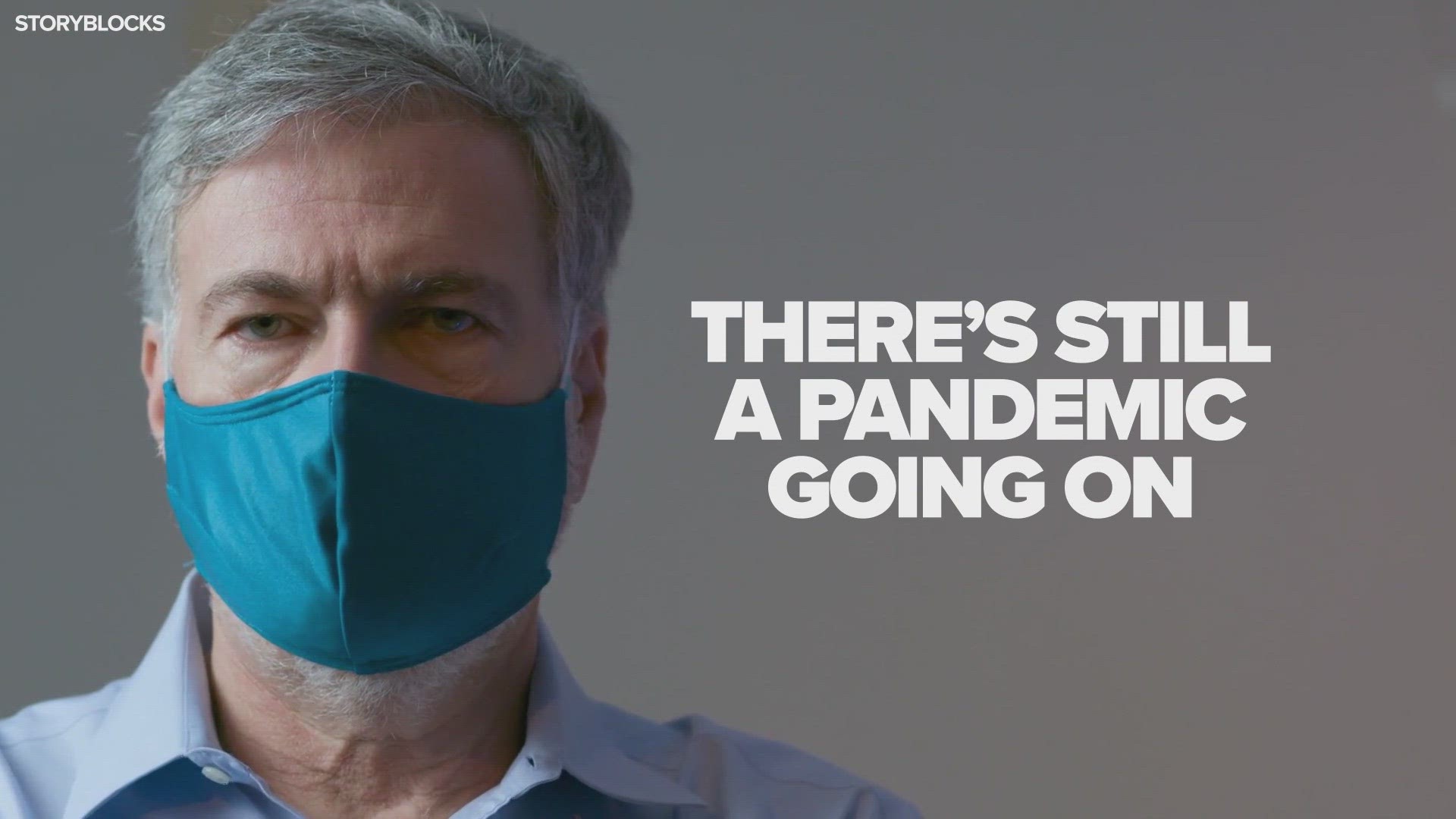PHOENIX — Since the coronavirus pandemic began, face masks have played an important part in helping to stop the spread of COVID-19. Mask mandates are becoming the norm in most states as people returned to public activities.
As the use of face masks are more prevalent across the United States, some may be experiencing an unwanted side effect of mask wearing: an increase in facial acne.
A quick search for "maskne" on Twitter showed many people are talking about the skin irritation and are searching for answers to clearing it up. The term is used to describe the acne from wearing a face mask.
With the increasing appearance of the trend online, we wanted to learn more about the mask acne. So we turned to a couple experts for their insight into this type of skin irritation.
Dr. Elliot Hirsch, Chief of Plastic Surgery at Providence Cedars-Sinai Tarzana Medical Center, and Dr. Margaret Husami, a local doctor in Phoenix, answered a few of our questions.
So what is "maskne," or face mask acne?
"Mask acne is a form of mechanical acne caused by skin irritation from the mask rubbing against the skin," said Dr. Hirsch.
In general, he stated this acne is worse in the summer months as the weather conditions are more hot and humid, which leads to more sweat and oil build up on the face.
Dr. Husami added that the friction between the skin and the mask fabric is a big cause of the acne. It could cause inflammation and clog up pores which could lead to acne flare ups.
"There could also be a buildup of oil and dead skin cells," she said. "They normally just fall right off, but now they're being held close to the face by the mask."
How do we prevent face acne while wearing a mask?
"As it gets more humid and hot, it's important to wipe your face off," Dr. Hirsch added. "Wash with gentle soap and water once a day to prevent oil build up."
Calming balms are also a good remedy for skin irritation like mask acne, he said. If people have sensitive or oily skin, they may be more at risk of developing mask acne, Dr. Hirsch added. He also said people who wear masks for extended periods of time without removing them are also at a higher risk of skin irritations. But for those who wear masks while out in public, some face mask fabrics may be better than others at preventing "maskne."
"If you're somebody who has sensitive skin, maybe a cloth mask made out of cotton, versus polyester will probably have a better chance at preventing irritation," he said. "Also masks that tie around the back of the head, that's more customizable than the one that loops around the ears."
Dr. Husami said it's much easier to prevent the acne from happening than treat it once it appears on your face, so she offered a few tips. A morning cleanse of your face, along with using moisturizer and sun screen is a suggested option for prevention. For women, using less make-up around the mask area is also a good recommendation as well.
For people with dry skin, Dr. Husami recommended using a creamy, gentle cleanser. If you have oily skin, she said cleansers with a little Salicylic acid are good to help control oil.
She also wanted to reiterate not to forget about the mask itself.
"Make sure you're using a clean mask," she said. "I know a lot of people are grabbing a mask sitting in their car or at home, but make sure you're cleaning your masks too."
Once you see mask acne appear on your face, how do you treat it?
So what should you do if you see an increase in acne on your face? Dr. Hirsch said the first step is identifying the irritation.
"First you want to make sure what you have is mechanical acne breakout," he said. "You could also get a hypersensitivity reaction too, or an allergy to the material in the mask."
Dr. Hirsch explained that an allergic reaction will look more like hives, redness, swollen and itchy areas, where acne will have pustules and pimples around the irritated area. If it is an allergic reaction, Dr. Hirsch recommends medicine such as Benadryl or topical Hydrocortisone. Those with acne should use a topical acne medication like benzoyl peroxide.
Those with dry skin are also at risk for acne as masks could actually pull out essential oils away from the face, Dr. Husami said.
"The loss of the essential oils can actually lead to the skin over compensating and producing more oil, which could lead to acne breakouts," she said. "So people with dryer skin should use cream or cleanser and moisturizer."
For more severe cases of acne that isn't appearing to clear up, Dr. Husami recommends visiting your primary care doctor or dermatologist.
So is "maskne" going to stick around for a while?
With mask mandates being implemented across the country and and no end to the coronavirus pandemic in the near future, Dr. Hirsch said he expects to see an increase in cases involving mask acne. But a proper skin care regiment could help prevent unwanted breakouts. And one of the ways to prevent breakouts could be getting facials regularly.
Dr. Husami said facials are a great way to keep your face clean and balanced as we appear to be wearing masks for the long hall. Dr. Hirsch also agrees with the benefits of facials for both men and women.
"Treat your skin the same way you treat your hair or car," he said. "Regular maintenance will be better for you in the long run."
He said the treatments are beneficial because facials and peels work by exfoliating the outer layers of skin, which will help remove dead skin cells that could potentially clog pores and lead to more acne. But with the COVID-19 pandemic, people should check to ensure treatment centers are open and following current safety guidelines.
So for now as we continue to wear face masks to help stop the spread of COVID-19, be sure to take proper care of your skin to avoid any "maskne" flare ups. Also, you can share photos of yourself in your mask with us on Facebook, Instagram and Twitter using the hashtag #BeOn12.



